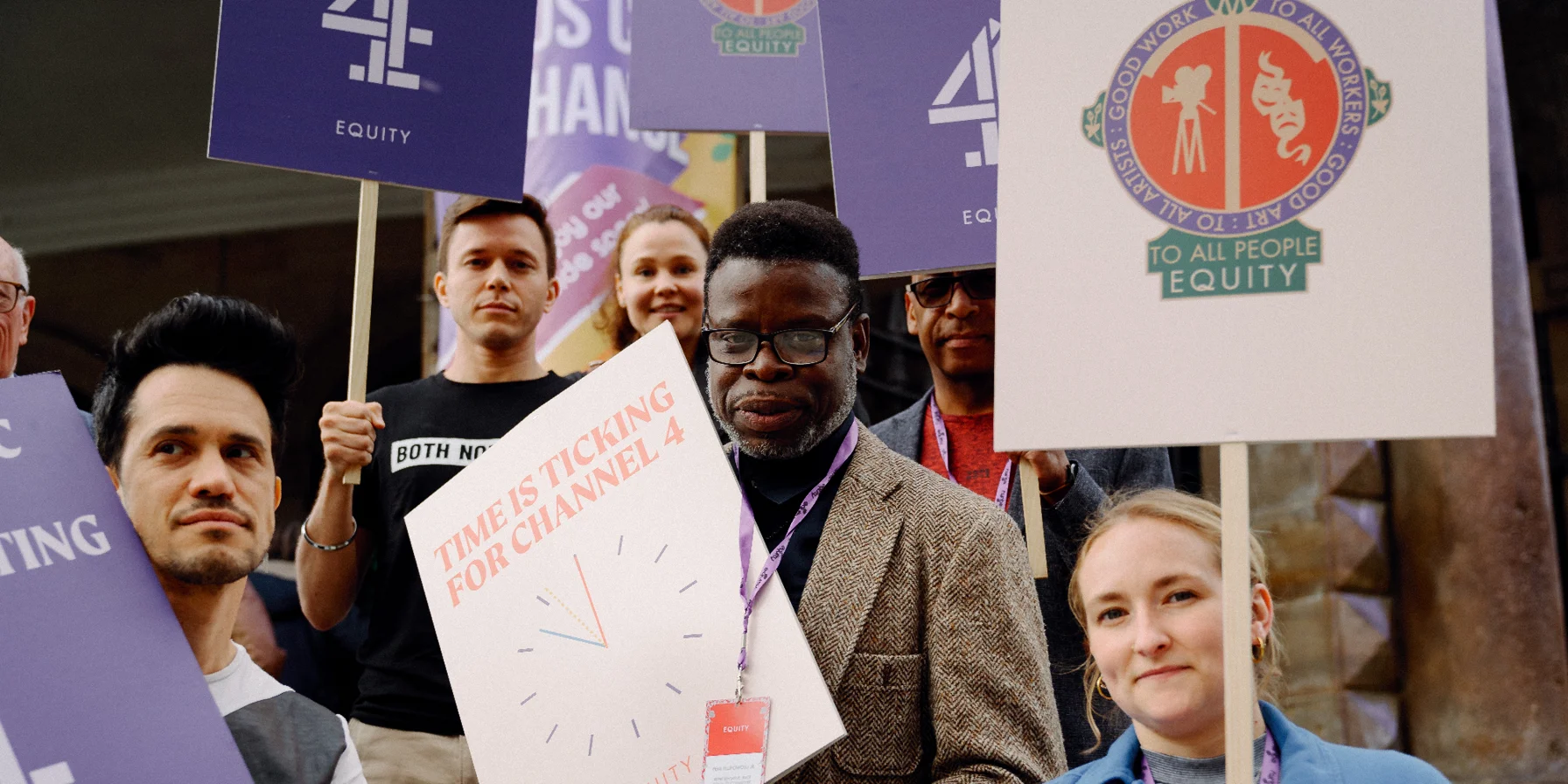Campaign Success: Privatisation is off the cards
Channel 4 is currently publicly-owned but commercially-funded. This means it can put public service before profit, at zero cost to the taxpayer.
Under Culture Secretary Nadine Dorries, the Department for Culture, Media and Sport had pressed ahead with plans to privatise the broadcaster. But following her recent departure and a new government taking office, plans to sell off Channel 4 appear to have been shelved.
We campaigned hard over the last year to avert a sell off, responding to government consultations, lobbying ministers, and coordinating our campaign with other TUC unions. Thank you to everyone who supported the campaign.
Channel 4, an incubator for new and diverse talent, producing dynamic, risk taking content, is safe for now. But we must ensure it is never put at risk like this again. We will be pressing the new government for new commitment’s about Channel 4’s status as a public broadcaster.
About the campaign
On 28 April 2022 the government published its broadcasting White Paper confirming that they plan to sell off Channel 4 after running a consultation last year.
We launched our campaign in response and sent a clear message to the Government to keep Channel 4 public. Many of you joined the fight by lobbying your MP, signing the petition and spreading the word on social media.
Our response to the Government consultation
We submitted written evidence to the Government’s consultation on the proposed privatisation of Channel 4. Read our submission.
Taking our campaign to the TUC
Equity proposed a motion on Channel 4 at the Trades Union Congress in September 2021. We called on all UK trade unions to oppose the privatisation of Channel 4 and back our campaign to protect public service broadcasting across the UK. The motion passed unanimously and are now officially backed by the TUC, the 48 member unions, and the 5.5 million working people they represent.
Joining forces with entertainment unions
Together with other entertainment unions, we sent a letter to Nadine Dorries (Secretary of State for Digital, Culture, Media and Sport) in September 2022 urging her to reconsider the Government’s plans to privatise Channel 4. Written by the Federation of Entertainment Unions (FEU), the letter was signed by Equity, Bectu, the National Union of Journalists, the Musicians’ Union and the Writers’ Guild of Great Britain. Read the letter.
Why join the campaign to stop the privatisation of Channel 4?
Nurturing new and diverse talent
- A privatised Channel 4 would focus on delivering profits, rather than diverse and distinctive content for audiences. It also currently delivers economic value for the UK creative industries, which are worth over £111bn to the economy.
- Privatisation will remove Channel 4's legislative responsibilities and remit to nurture new talent, to reflect cultural diversity, to show alternative viewpoints and to invest in UK film.
- The loss of Channel 4’s remit could affect the employment opportunities available to performers and other creative workers from underrepresented backgrounds. This remit currently means Channel 4’s commissioned programming is focussed on representing the UK’s cultural diversity and alternative voices.
Working with independent production companies
- Since it was created in 1982 Channel 4 has directly invested £12bn in the UK’s independent production sector and every year works with 300 smaller production companies.
- Channel 4 commissions more independent productions than BBC One, BBC Two, ITV or Channel 5. In recent years, Channel 4 has maintained or increased its quota obligations while privately owned ITV and Channel 5 have sought to reduce theirs.
Boosting the UK economy
- Of the estimated £4.5bn invested in UK content in 2019, £2.8bn came from Public Service Broadcasters – more than half.
- Film4 productions have won 37 Academy Awards and 84 BAFTAs. Channel 4/Film4 spends more on British film than any other UK broadcaster.
- Channel 4 is in solid financial health and on track to achieve £1bn in revenue in 2021.
- A recent economic study by Ernst & Young found that if the publisher broadcaster model and heightened public service obligations were removed, £2.1bn could be slashed from the supply chain over a ten-year period and there would be 2,400 fewer jobs each year.
Growing audience
- Channel 4’s digital streaming service All 4 saw a 26% increase in views in 2020 and now has 24 million registered viewers including 80% of 16-34 year olds in the UK. Channel 4’s 16-34 audience profile is 14% – around double the 16- 34 profile of BBC1 and BBC2 at 7%.
Levelling up
- Outside London, the five main UK Public Service Broadcasters accounted for 61% of the £1bn revenues generated by Nations and Regions based independent production companies in 2019. By moving its National HQ to Leeds and opening Creative Hubs in Bristol and Glasgow, Channel 4 is building new creative clusters and supporting thousands of jobs in the creative industries.
- By the end of 2021, Channel 4 will spend half of its original content budget in the UK’s Nations and Regions – two years ahead of schedule. It will be basing its Head of Drama in Leeds.


